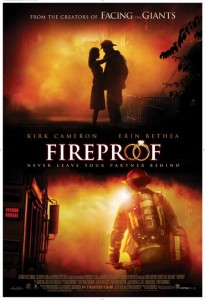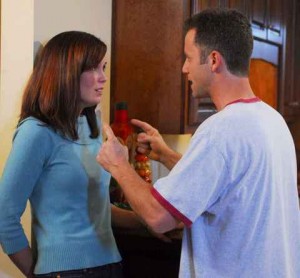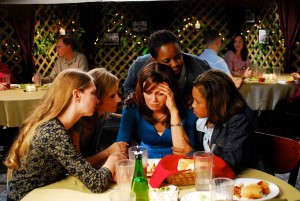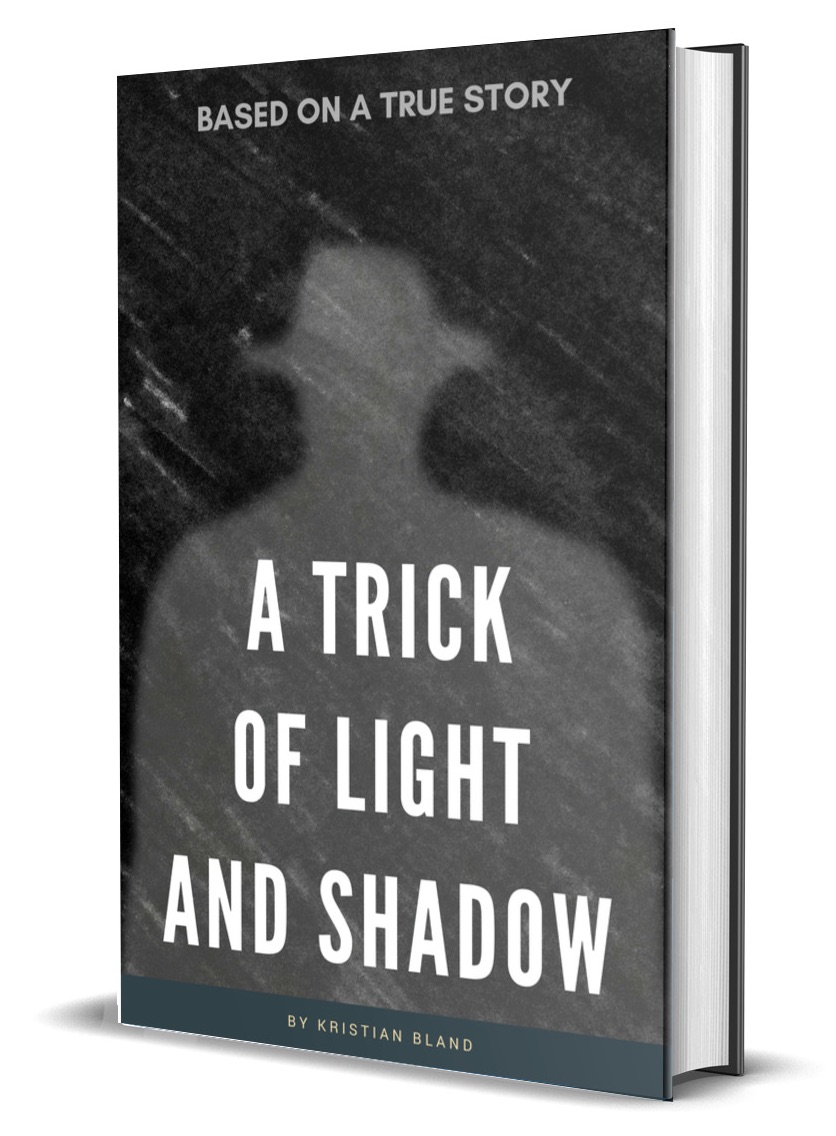Posted on April 20, 2009
Poop And Fireproof!
 I spent the weekend locked in a self-imposed quarantine along with fellow sickos Brittany and Trey. The funny part is, I’m fairly certain that I would not have contracted this dreaded plague had it not been for The Boy. Normally, I avoid the Infected like they were the shuffling, shambling hordes of soulless undead inching towards me in a unholy hunger for my brains. However, the cuteness that is Trey rendered my usual defenses moot, and I found myself not only willingly – but eagerly – returning his embraces and ceaseless demands for the snot and slobber kisses of The Sick Child.
I spent the weekend locked in a self-imposed quarantine along with fellow sickos Brittany and Trey. The funny part is, I’m fairly certain that I would not have contracted this dreaded plague had it not been for The Boy. Normally, I avoid the Infected like they were the shuffling, shambling hordes of soulless undead inching towards me in a unholy hunger for my brains. However, the cuteness that is Trey rendered my usual defenses moot, and I found myself not only willingly – but eagerly – returning his embraces and ceaseless demands for the snot and slobber kisses of The Sick Child.
So, being infirmed in a house of disease left us a lot of time to just sit around and do family things. For example, we played indoors catch with a soft neon green baseball that Trey would catch in his tiny little velco-lined glove before launching it in the vague direction of either Brittany or myself in that special, chaotic type of over-handed and pistol-cocked version of a whole-arm fulcrum that little kids everywhere consider the ultimate in pitching form. Of course, the ball rarely flies in the intended direction, so attempting to catch it is an education in the helter-skelter nature of an infinite probability matrix coupled with arcane inter-dimensional physics and pure, dumb luck.
 Apart from little games like that, our patience was tested by Trey’s inability to properly sequence time and causality in such a way that would inform him of the need to tell us that he has to use the bathroom before he makes a deposit into his diaper or pull-up, rather than after. He’s getting better with this, and the whole potty-training concept is not lost on him. He just doesn’t yet understand the basic if-then logic of the whole affair. For instance, what we want him to understand is that: if he has to pee, then he tells us and we take him to the toilet. However, what his comprehension of such things seems to involve is: if I have to poop, I poop – then, I extract it from my diaper and carry it into the living room to present to everyone as a rare and precious excremental prize of post-digestive victory!
Apart from little games like that, our patience was tested by Trey’s inability to properly sequence time and causality in such a way that would inform him of the need to tell us that he has to use the bathroom before he makes a deposit into his diaper or pull-up, rather than after. He’s getting better with this, and the whole potty-training concept is not lost on him. He just doesn’t yet understand the basic if-then logic of the whole affair. For instance, what we want him to understand is that: if he has to pee, then he tells us and we take him to the toilet. However, what his comprehension of such things seems to involve is: if I have to poop, I poop – then, I extract it from my diaper and carry it into the living room to present to everyone as a rare and precious excremental prize of post-digestive victory!
What’s really bizarre is that, no matter how many times he does this, and regardless of how foul and revolting his latest turd trophy may be, it’s hilarious. It’s difficult to describe, but there’s just something about seeing this little wide-eyed guy come walking in, triumphantly holding aloft his latest bowel movement and beaming with the innocent pride of a (perceived) job well done, that rings a special chord of hideous abhorrence combined with incorrigible delight to produce a harmonious tone of absolute hilarity.
 Seriously, it’s impossible to get angry at someone who takes such unabashed jubilance in covering himself in his own feces, even when you’re the one that has to clean it up. I’m not sure why this is, but I suspect that science will one day prove that children excrete some sort of empathy-inducing pheromone targeted at adults that keeps them out of trouble – at least as long as they’re small enough to be cute. It must wear off with age though, because there’s nothing at all cute about an adult who does these sorts of things, as people tend to shy away from crazy people who throw their poo.
Seriously, it’s impossible to get angry at someone who takes such unabashed jubilance in covering himself in his own feces, even when you’re the one that has to clean it up. I’m not sure why this is, but I suspect that science will one day prove that children excrete some sort of empathy-inducing pheromone targeted at adults that keeps them out of trouble – at least as long as they’re small enough to be cute. It must wear off with age though, because there’s nothing at all cute about an adult who does these sorts of things, as people tend to shy away from crazy people who throw their poo.
When Trey was sleeping or otherwise occupied, Brittany and I wallowed in the self-despair of daytime television and movies. Eventually, we got around to watching the Kirk Cameron opus, “Fireproof”. I hated it immediately.
Of course, that was before I watched it. My initial knee-jerk response was to loathe it without remorse, but Brittany wanted to see it and I admit that I was a little curious as to what all the fuss was about. If you’re not aware of this movie, then you probably don’t live in the south or the midwest, and the term “Bible Belt” provokes in you images of Kevin Bacon gymnastically dancing through abandoned factories and pissing off John Lithgow, rather than thoughts of home. However, seeing as I live in Texas, the publicity on this movie is inescapable. Even now, well after its release, hype for the film still finds its way into that daily lives of those of us who live in America’s heartland. (Or, as is the case with southeast Texas – the armpit.)
“Fireproof” was the highest grossing independent film of 2008, and is a Christian-centered movie produced on a $500,000 budget, starring Kirk Cameron and volunteer thespians from the Sherwood Baptist Church in Albany, Georgia. It is very heavy-handed in its message, entirely – and perhaps unknowingly – forgetting the role that the simple concepts of ethos, pathos, and logos play in persuasive storytelling. It’s the very example of “preaching to the choir” as it’s doubtful that its ham-fisted approach to the subject matter will convert anyone who wasn’t already a subscriber to the faith. Still, it really wasn’t that bad.
 It accomplished what it set out to do, and will doubtlessly be a reaffirmation of the worldviews of many members of its audience. Kirk Cameron’s performance is solid and convincing, and while the acting from the supporting cast is less than stellar, it’s serviceable and gets the job done. I don’t want to be one of those guys who sits on the sidelines and throws jabs at the hard work that’s been put into a film by a lot of well-intentioned, passionate people. I think the movie works for what it is, and is indicative of what could be the early days of a rising trend in cinema: namely, the increased viability of niche market films produced for small budgets for large gains.
It accomplished what it set out to do, and will doubtlessly be a reaffirmation of the worldviews of many members of its audience. Kirk Cameron’s performance is solid and convincing, and while the acting from the supporting cast is less than stellar, it’s serviceable and gets the job done. I don’t want to be one of those guys who sits on the sidelines and throws jabs at the hard work that’s been put into a film by a lot of well-intentioned, passionate people. I think the movie works for what it is, and is indicative of what could be the early days of a rising trend in cinema: namely, the increased viability of niche market films produced for small budgets for large gains.
Of course, I did have a problem with the movie. In fact, the main point that I found contentious is probably something that hasn’t been widely discussed by those who’ve felt the need to talk about the film. There seems to be a strong undertone of misogyny in “Fireproof” that I suspect goes unnoticed by most of its supporters. The basic plot of the movie involves Kirk Cameron’s character, Caleb Holt, following the forty-day program of something called The Love Dare, in order to save his marriage. Throughout the course of his journey, he naturally comes to God and, through Him, Caleb’s efforts are finally rewarded when his wife Catherine, played by Erin Bethea, decides to give him a second chance. The problem I have with the movie is that it paints the wife as a vacuous shell who is entirely emotionally dependent on the whims of the men in her life.
The film suggests that the disharmonious state of the couple’s marriage is the fault of the husband and, as such, it is ultimately his responsibility to repair it. While “Fireproof” doesn’t get bogged down in the minutiae of what led a happy marriage to such dire straights, it regularly shows that the husband is the one ultimately responsible for its success or its failure.
Indeed, even when Caleb is well on his way through The Love Dare, Catherine takes little notice of his efforts, as she is being distracted by the attentions of Dr. Gavin Keller, played by Perry Revell. It is not until Caleb confronts Dr. Keller in a brief, “Stay away from my girl,” monologue that causes the good doctor to halt his pursuit of Catherine, which finally allows her to begin taking notice of Caleb’s sincere efforts to address the problems of their failing marriage. It would appear that, as long as she was receiving the advances of another man, she was unable to make her any of her own decisions. Even as she witnesses the positive changes in her spouse’s behavior, she dismisses them out of hand and openly resents them – so long as another man is showing interest. Her girlfriends aren’t much help, either. In fact, the movie makes it clear that women getting together to discuss their problems can only make things worse. Each time Catherine’s friends advise her, their words of wisdom are completely contrary to the reality that the film is trying to present, and thus it is implied that allowing women to congregate together outside of male supervision is a practice best avoided altogether.
Of course, the film’s main goal is to show the necessity for God in one’s life, and the misogyny may entirely be accidental. After all, it’s not until Caleb fully accepts God’s control that he finds his wife slowly start coming around. It may have just worked out in the narrative order that this sudden call to Faith sparked Caleb to confront the other man, which in turn led to his backing down and the wife’s eventual appreciation of her husband’s efforts. Still, the timing seems suspicious, and whether the filmmakers intended for the audience to come to the conclusion that it was either God’s will or Caleb’s will, the meaning is clear that it was never the woman’s will.
To be fair, there is a slight twist at the end of the movie that tries to counter the misogyny. I won’t spoil it here by spelling it out, but it seemed a very half-hearted and lazy way to get around what I feel is the most damaging message of a film that is intended to be helpful to people. Unfortunately, I don’t think that many fans of the movie will catch the misogynistic bits, simply because they are a way of life for many people.
While it’s not often stated outright in evangelical belief systems (except when it is), there seems to be a general acceptance of the idea that a woman’s place is fundamentally second to her husband’s. It appears as if there is an understanding that, once married, a woman is no longer in direct control of her life, and that everything – responsibility for every failure and credit for every success – rests ultimately upon her husband’s shoulders, and his alone. I can’t help but believe that this sort of mentality creates a culture of women who silently suffer through eventual feelings of resentment that they were never fully in control of their lives. Tragically, it is this very resentment that may well be behind countless divorces of the very church-going couples that “Fireproof” was designed to help.

Bound in real simulated leather, the secrets that God wants everyone to know can be bought for $22.99.
I would love to hear from someone involved in the making of “Fireproof” so that we could address this concern. If you’re out there and reading this, please feel free to contact me. It would be interesting to engage in a dialog that might lead to a greater understanding of the film’s intended meaning vs. its unintended message. Or, maybe the misogyny was purposefully superimposed on the narrative, and you would like to discuss why you feel this was a good angle to present to the audience. Either way, I’d like to hear from you. My e-mail address can be found here.











I loved that movie punk!.lol